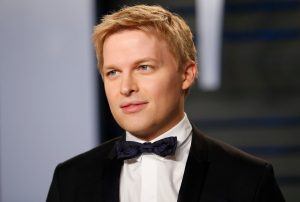Daniel Kurtz-Phelan in The New York Times:
 In 2010, just before Thanksgiving, American foreign-policy makers flew into a panic. The United States government had gotten word that an outfit called WikiLeaks was preparing to release an enormous cache of secret diplomatic cables, in coordination with teams of journalists from this and other newspapers. At the time, I was a policy hand in the State Department. It fell to me and my colleagues to dutifully craft apologies on behalf of our bosses, whose sensitive communications and private insults — speculation about, say, a foreign leader’s mental aptitude or mysterious wealth — were about to become public. They, meanwhile, confronted weightier concerns, scrambling to anticipate the coming fallout. Would missions and sources be compromised? Would activists be exposed to persecution? Would anyone ever talk to American officials again? Almost no one, however, anticipated what would prove to be one of the more lasting consequences of the leak: surprised admiration for American diplomats. “My personal opinion of the State Department has gone up several notches,” the British historian and journalist Timothy Garton Ash wrote. He compared one veteran ambassador’s prose to Evelyn Waugh’s, and deemed other analyses “astute,” “unsentimental” and “hilarious.” Beneath their “dandruffy” exteriors, he concluded after browsing the classified offerings, these diplomats were sharper, and funnier, than they looked.
In 2010, just before Thanksgiving, American foreign-policy makers flew into a panic. The United States government had gotten word that an outfit called WikiLeaks was preparing to release an enormous cache of secret diplomatic cables, in coordination with teams of journalists from this and other newspapers. At the time, I was a policy hand in the State Department. It fell to me and my colleagues to dutifully craft apologies on behalf of our bosses, whose sensitive communications and private insults — speculation about, say, a foreign leader’s mental aptitude or mysterious wealth — were about to become public. They, meanwhile, confronted weightier concerns, scrambling to anticipate the coming fallout. Would missions and sources be compromised? Would activists be exposed to persecution? Would anyone ever talk to American officials again? Almost no one, however, anticipated what would prove to be one of the more lasting consequences of the leak: surprised admiration for American diplomats. “My personal opinion of the State Department has gone up several notches,” the British historian and journalist Timothy Garton Ash wrote. He compared one veteran ambassador’s prose to Evelyn Waugh’s, and deemed other analyses “astute,” “unsentimental” and “hilarious.” Beneath their “dandruffy” exteriors, he concluded after browsing the classified offerings, these diplomats were sharper, and funnier, than they looked.
Ronan Farrow aims to achieve a similar effect in “War on Peace.” At a time when the Trump administration has called for gutting the State Department’s budget and filled foreign-policy jobs with military officers, Farrow draws on both government experience and fresh reporting to offer a lament for the plight of America’s diplomats — and an argument for why it matters. “Classic, old-school diplomacy,” he observes, is “frustrating” and involves “a lot of jet lag.” Yet his wry voice and storytelling take work that is often grueling and dull and make it seem, if not always exciting, at least vividly human. A Foreign Service officer’s hairstyle is “diplomat’s mullet: peace in the front, war in the back”; an Afghan strongman’s choice of décor is “warlord chic,” with “leatherette La-Z-Boy recliners” and “a giant tank full of sharks.”
More here.
